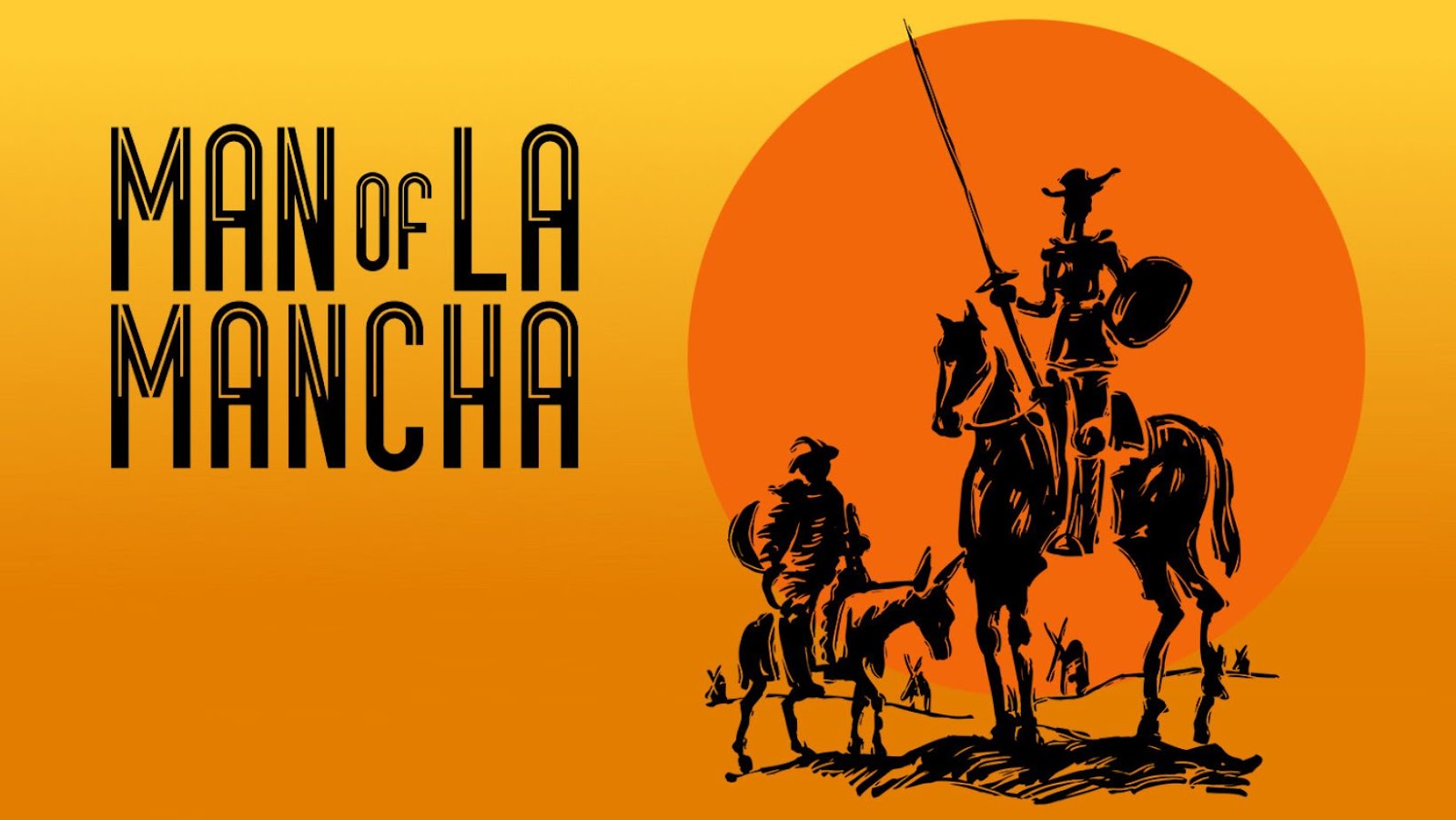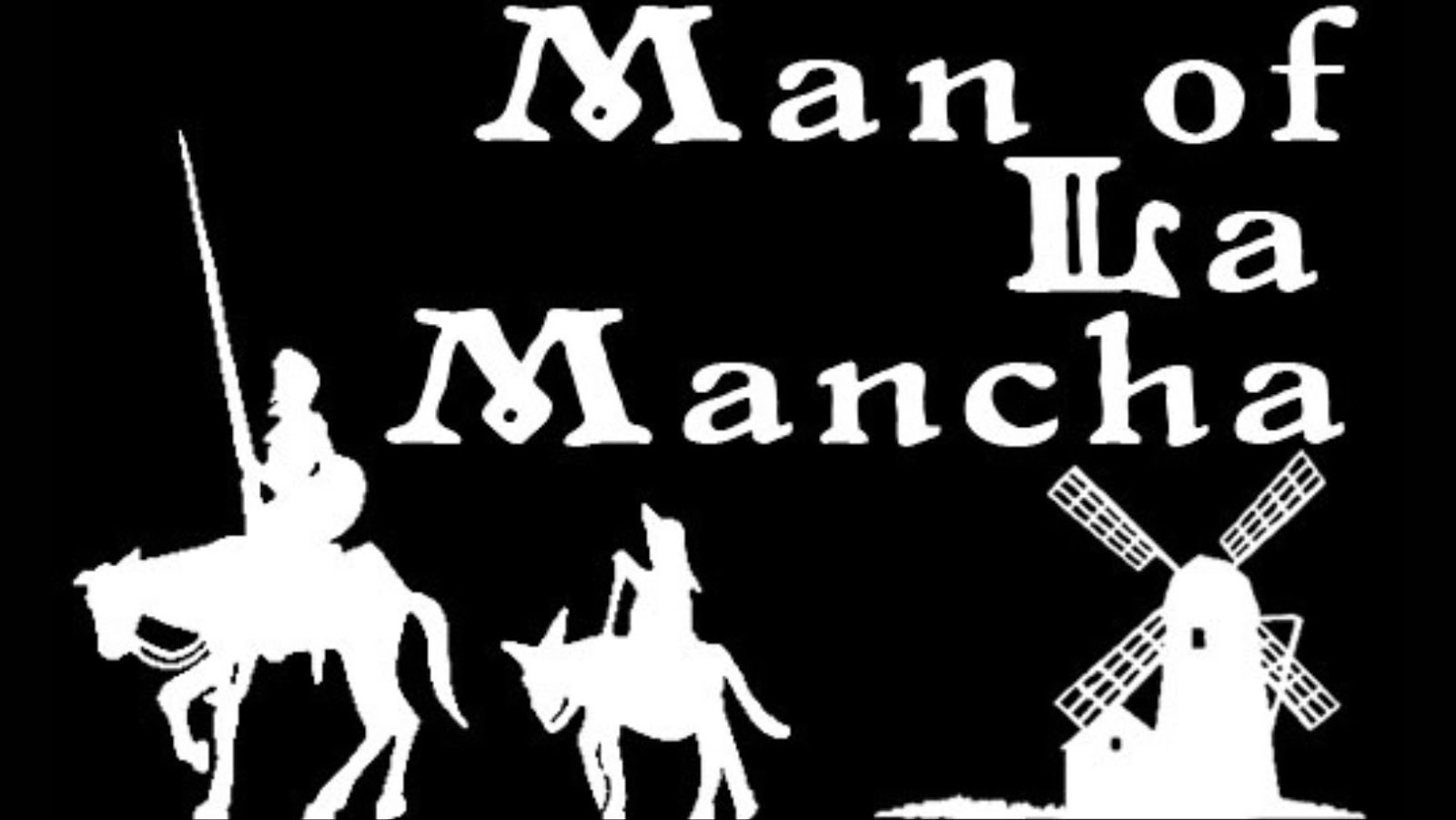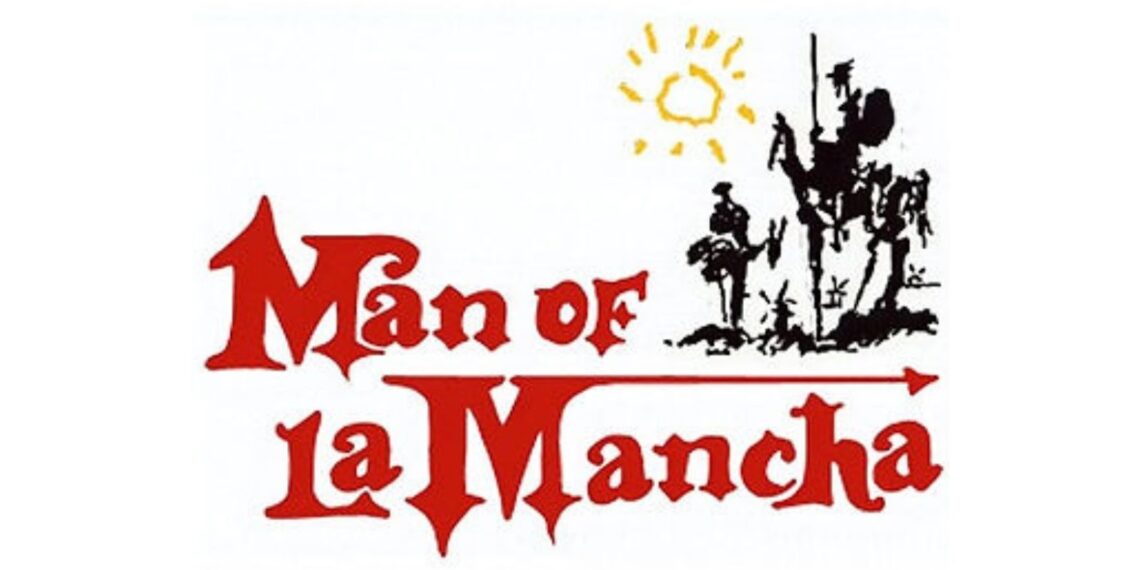The famous fictional Spaniard known as “The Man of La Mancha” is Don Quixote, the central character in Miguel de Cervantes’s novel “Don Quixote.”
Don Quixote is an elderly gentleman who becomes so enamored with tales of chivalry and adventure that he sets out on his quest, accompanied by his faithful squire, Sancho Panza. Donning a suit of armor, he renames himself “The Knight of the Doleful Countenance” and sets out on a comical journey to right wrongs and defend the honor of his lady love, Dulcinea.
The character of Don Quixote has become a symbol of idealism and the power of the imagination, inspiring numerous adaptations, including the classic Broadway musical “Man of La Mancha.”
Introduction To “The Man of La Mancha”
The classic tale of “The Man of La Mancha” is one of the most beloved stories in Spanish literature. It tells the story of Don Quixote and his pursuit of justice and chivalry. Spanning various literary genres, this tale has inspired countless works of art and literature.
This article will explore the legend of “The Man of La Mancha” and his influence on Spanish culture.
History and background of “The Man of La Mancha”
“The Man of La Mancha” is a musical based on the novel “Don Quixote” by Miguel de Cervantes. It features the story of the eccentric Spanish nobleman, Alonso Quixano, who is driven to madness by his obsession with chivalry and ideals of honor. Donning a suit of armor and calling himself Don Quixote, he sets out to right wrongs and defend the helpless, accompanied by his loyal squire, Sancho Panza. The play’s most famous song, “The Impossible Dream,” has become an anthem of hope and perseverance, embodying Don Quixote’s unwavering determination to pursue his dream of becoming a heroic knight.
“The Man of La Mancha” has been staged worldwide and has won multiple awards, including five Tony Awards in 1966. The show’s enduring popularity is a testament to the timeless appeal of Don Quixote’s story and the universal theme of striving for the impossible.
Overview of the plot and characters
“The Man of La Mancha” is an acclaimed musical based on the 17th-century novel “Don Quixote” by Miguel de Cervantes. The story is set in a prison during the Spanish Inquisition and follows the character of Cervantes as he tells the story of Don Quixote, a self-proclaimed knight who sets out to right the world’s wrongs and protect the oppressed. Don Quixote’s journey is juxtaposed with the harsh reality of the prison and its inhabitants, creating a powerful and moving story.
The musical’s main characters include Don Quixote himself, his loyal sidekick Sancho Panza, and a prostitute named Aldonza, whom Don Quixote sees as his true love and calls Dulcinea.
The legend of Don Quixote and his quest for justice has stood the test of time, inspiring countless works of art and literature.
Significance of the character in popular culture
The character “The Man of La Mancha” is significant in popular culture for his inspirational story of hope and perseverance in adversity. The Man of La Mancha is a fictional character from the novel “Don Quixote” by Spanish author Miguel de Cervantes. The Man of La Mancha, whose real name is Alonso Quijano, is a middle-aged man who becomes so enamored with the ideals of chivalry and honor that he sets out to become a knight. He dons a suit of armor and rides his old nag Rocinante, with his loyal squire Sancho Panza by his side, into the world to fight injustice and defend the helpless.
“The Man of La Mancha” has inspired countless adaptations, including a stage play and a film version, and has become a symbol of the human spirit’s ability to overcome obstacles and achieve greatness.

Don Quixote: The Man Behind “The Man Of La Mancha”
Don Quixote, the now-famous fictional Spaniard, is known for his iconic role in the story “The Man of La Mancha.” From his chivalrous antics to his quest for the impossible, Don Quixote has captivated readers for centuries.
But who is Don Quixote, and where does his story come from? Let’s explore the legend behind the man of La Mancha.
Biography and works of Miguel de Cervantes
Miguel de Cervantes is a celebrated Spanish writer, author of the masterpiece literature work, Don Quixote. The novel The Man of La Mancha is based on the adventures and misadventures of a character named Alonso Quixano, who wanted to relive the chivalrous lifestyle of medieval knights. Cervantes explored the themes of idealism, reality, and social satire in his works after having a fascinating life.
Born in 1547 in Alcalá de Henares, Cervantes pursued various professions such as being a soldier, a tax collector, a prisoner, and a playwright before he became an author. Cervantes created realistic and complex characters, using the genre of realism to question the ideals of chivalry and nobility. Through his works, Cervantes’ legacy continues to influence modern Spanish and world literature.
Pro tip: Reading Don Quixote can give readers an understanding of the Spanish culture and way of life during the 16th century.
The creation of the character Don Quixote
Don Quixote is a famous fictional Spaniard character called “The Man of La Mancha.” Miguel de Cervantes, a Spanish novelist, is responsible for creating this legendary character.
Cervantes’ inspiration for Don Quixote came from his daily observations of human behavior and society in 16th-century Spain. Cervantes also drew from his experiences during military service, imprisonment, and travels to create the character.
“The Man of La Mancha” is a phrase that comes from the title of one of the most famous plays based on the character. Don Quixote is widely regarded as one of the most influential works of fiction in western literature.
Don Quixote’s cultural impact has been enormous, and his enduring character has been adapted into numerous films, television shows, operas, and plays. Thanks to Cervantes’ brilliant imagination, Don Quixote remains an iconic figure in popular culture today.
The characteristics of Don Quixote and his relevance to the story
Don Quixote is a complex character whose unique characteristics and actions are crucial to the story’s plot. He is known for his delusions of grandeur, his idealism, and his unwavering courage.
Don Quixote’s relevance to the story lies in his pursuit of chivalry, which drives his quest to become a knight errant. He is relentless in his pursuit of a world that is governed by chivalry, even if that world exists only in his imagination.
Through Don Quixote’s character, the story explores the themes of idealism, reality vs. fantasy, and the power of imagination. In addition, his character demonstrates how our perception of the world can shape our reality and the lengths one can go to achieve their ideological goals.
Pro tip: Don Quixote’s character has inspired countless works of literature and art, cementing him as one of the most iconic figures in Western literature.

What Famous Fictional Spaniard Is Known As “The Man Of La Mancha?
Don Quixote, a legendary Spanish knight from the 17th century, is one of the most beloved fictional characters ever. He is also known as “The Man of La Mancha,” a tribute to his never-ending quest to become a great knight.
But what is the story behind this famous fictional Spaniard? First, let’s explore Don Quixote’s legend and better understand why this beloved character has earned his place in popular culture.
The origin and evolution of the legend
“The Man of La Mancha” is a famous fictional character who has become a cultural icon representing idealism and the power of the imagination. Miguel de Cervantes created the character in the 17th century, and his adventures have been retold in various forms throughout history.
The Man of La Mancha is best known as Don Quixote, the delusional knight who sets out to right wrongs and defend honor with his loyal sidekick, Sancho Panza. The novel “Don Quixote” has been translated into over 140 languages and is considered one of the greatest works of fiction ever written.
The legend of Don Quixote has evolved over time, and the character has been portrayed in various forms, including plays, films, television shows, and operas. Don Quixote’s idealism and quest for justice have inspired generations of readers and artists, cementing his place in history as one of the most beloved fictional characters ever.
Analysis of key themes and elements of the legend
The Man of La Mancha is a famous fictional Spaniard also known as Don Quixote, the protagonist of the novel “Don Quixote de la Mancha” by Miguel de Cervantes. The novel follows the adventures of Don Quixote and his loyal squire Sancho Panza as they traverse the Spanish countryside, battling imagined enemies and upholding the ideals of chivalry.
Key themes and elements of the legend include:
- The blurred line between reality and fantasy.
- The power of imagination.
- The conflict between idealism and pragmatism.
Don Quixote’s character embodies these themes, as he rejects the mundane realities of the world in favor of his romanticized version of chivalry and heroism. As a result, the novel has had a lasting impact on literature and popular culture, inspiring countless adaptations and interpretations.
The impact and influence of the legend on literature and culture
The Man of La Mancha is one of the most famous fictional Spaniards in literature and culture. The impact and influence of this legend have been felt across generations, with its themes of idealism, chivalry, courage, and redemption resonating with readers and audiences worldwide.
The Man of La Mancha is the character of Don Quixote- a knight, who sought to revive chivalry and combat injustice. He is the creation of Miguel de Cervantes, one of the most celebrated and influential writers of the Spanish Golden Age. The novel’s enduring popularity and cultural impact have led to adaptations in various forms, including stage plays, films, and even musicals.
With its timeless message of hope, perseverance, and idealism in the face of overwhelming odds, The Man of La Mancha continues to inspire and influence literature and culture today.

Legacy Of “The Man of La Mancha”
For centuries, “The Man of La Mancha” has been a source of inspiration and immortalized in literature and film. This timeless character has become a symbol of courage, resilience and a dedication to one’s cause, no matter how seemingly impossible. He remains an iconic figure in the culture of the Spanish-speaking world.
This article will explore the legacy of “The Man of La Mancha”.
Understanding the significance of the character
The famous fictional Spaniard known as “The Man of La Mancha” is Don Quixote. This character is significant because of his unwavering quest to right wrongs and defeat injustice, even if it means tilting at windmills.
Don Quixote’s legacy is one of perseverance and idealism, even in the face of ridicule and disappointment. His character has been immortalized in literature, music, and theater and continues to inspire people today.
Exploring the legend of Don Quixote can provide valuable insight into the human condition, including themes of chivalry, disillusionment, and the pursuit of truth and justice.
Contemporary adaptations and interpretations of “The Man of La Mancha”
“The Man of La Mancha” is a famous novel by Miguel Cervantes, written in 1605, that tells the story of a man named Alonso Quixano who, after reading too many tales of chivalry, decides to become a knight named Don Quixote and go on adventures to right wrongs and defend the honor of his lady love, Dulcinea.
In modern times, “The Man of La Mancha” has been adapted into numerous plays, films, and musicals, each with its unique interpretation and story presentation.
One of the most popular adaptations of “The Man of La Mancha” is the musical of the same name, which premiered in 1965 and has been staged and performed worldwide since then. The musical features the memorable song “The Impossible Dream” and explores idealism, hope, and perseverance themes.
Don Quixote, the novel’s protagonist, is known as “The Man of La Mancha” in popular culture and is widely regarded as one of the greatest characters in world literature.
Conclusion and final thoughts on the legend
In conclusion, the legacy of “The Man of La Mancha” continues to inspire and captivate audiences worldwide. Don Quixote’s quest for chivalry, love, and honor remains timeless and universal, resonating with anyone who dares to pursue their dreams and ideals against all odds.
As for the question, “What Famous Fictional Spaniard is Known as The Man of La Mancha?” The answer is Don Quixote, the protagonist of the eponymous novel by Miguel de Cervantes. The story of Don Quixote has been adapted into numerous plays, films, and musicals, including the iconic Broadway production of “The Man of La Mancha.”
Through the centuries, Don Quixote has become more than a literary character; he has become a symbol of hope, courage, and imagination. His legacy will continue to inspire generations to come.













